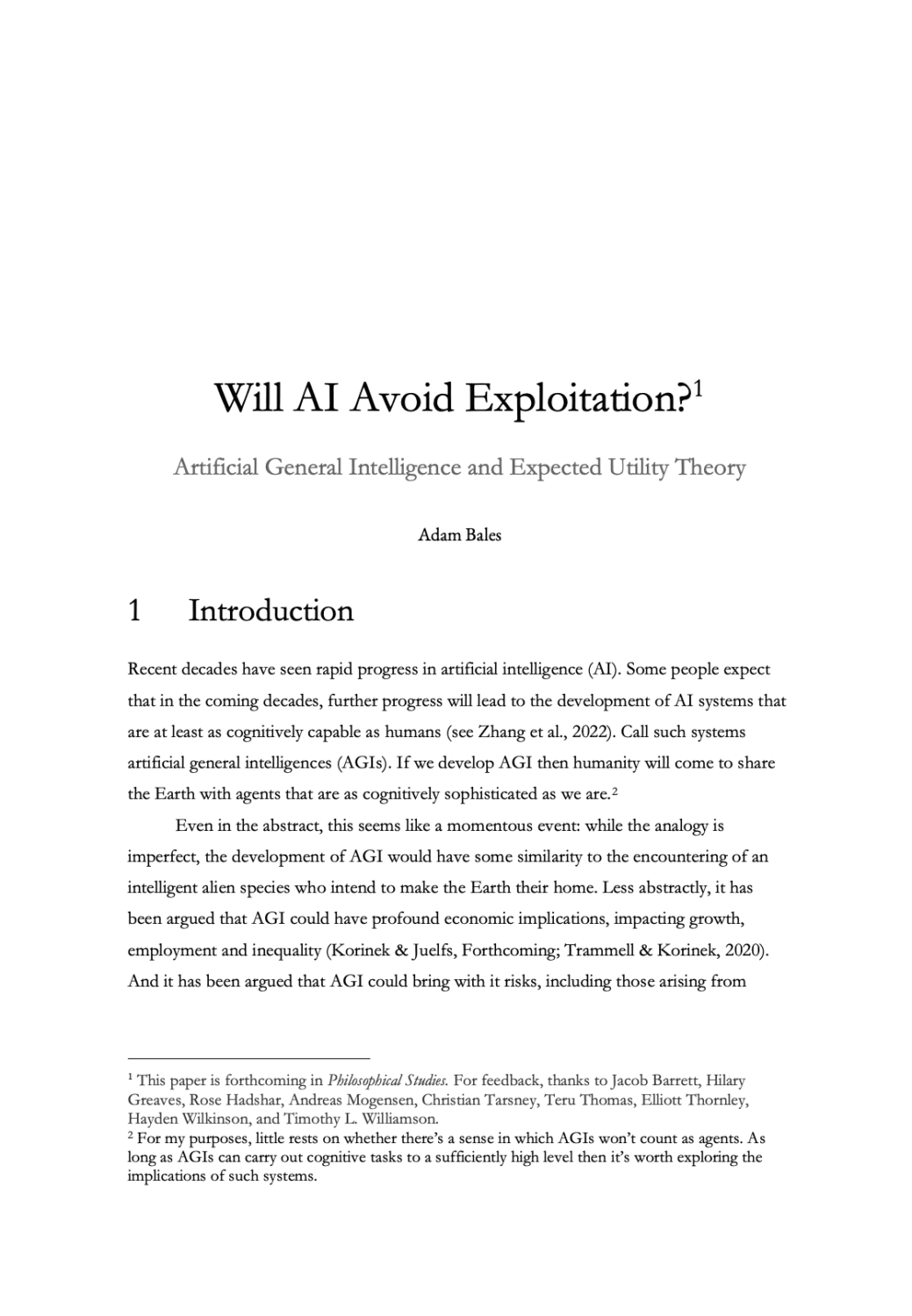Will AI Avoid Exploitation?
Adam Bales (Global Priorities Institute, University of Oxford)
GPI Working Paper No. 16-2023, published in Philosophical Studies
A simple argument suggests that we can fruitfully model advanced AI systems using expected utility theory. According to this argument, an agent will need to act as if maximising expected utility if they’re to avoid exploitation. Insofar as we should expect advanced AI to avoid exploitation, it follows that we should expected advanced AI to act as if maximising expected utility. I spell out this argument more carefully and demonstrate that it fails, but show that the manner of its failure is instructive: in exploring the argument, we gain insight into how to model advanced AI systems.
Other working papers
In search of a biological crux for AI consciousness – Bradford Saad (Global Priorities Institute, University of Oxford)
Whether AI systems could be conscious is often thought to turn on whether consciousness is closely linked to biology. The rough thought is that if consciousness is closely linked to biology, then AI consciousness is impossible, and if consciousness is not closely linked to biology, then AI consciousness is possible—or, at any rate, it’s more likely to be possible. A clearer specification of the kind of link between consciousness and biology that is crucial for the possibility of AI consciousness would help organize inquiry into…
The paralysis argument – William MacAskill, Andreas Mogensen (Global Priorities Institute, Oxford University)
Given plausible assumptions about the long-run impact of our everyday actions, we show that standard non-consequentialist constraints on doing harm entail that we should try to do as little as possible in our lives. We call this the Paralysis Argument. After laying out the argument, we consider and respond to…
Heuristics for clueless agents: how to get away with ignoring what matters most in ordinary decision-making – David Thorstad and Andreas Mogensen (Global Priorities Institute, Oxford University)
Even our most mundane decisions have the potential to significantly impact the long-term future, but we are often clueless about what this impact may be. In this paper, we aim to characterize and solve two problems raised by recent discussions of cluelessness, which we term the Problems of Decision Paralysis and the Problem of Decision-Making Demandingness. After reviewing and rejecting existing solutions to both problems, we argue that the way forward is to be found in the distinction between procedural and substantive rationality…

